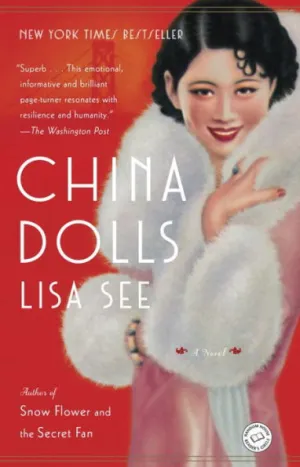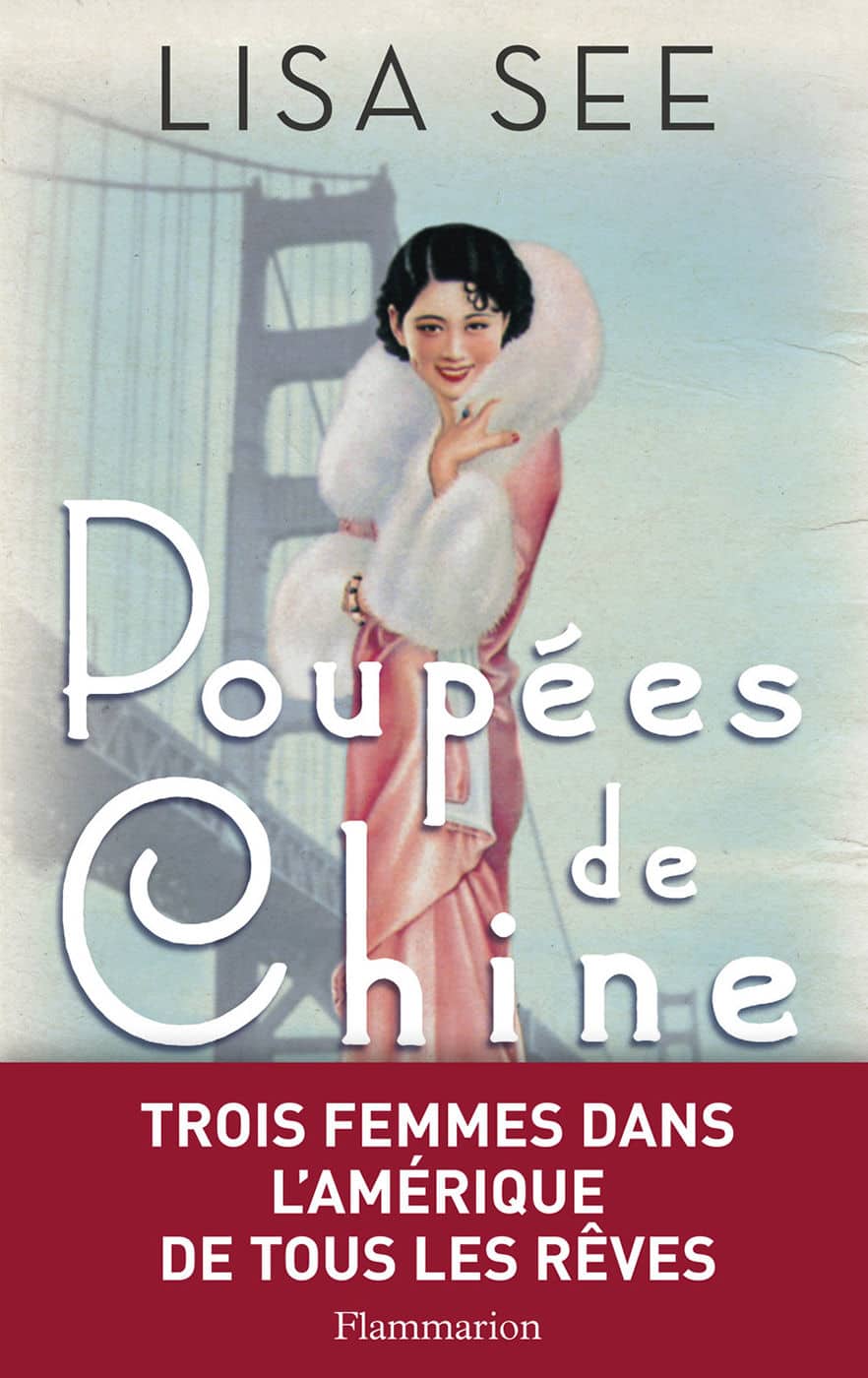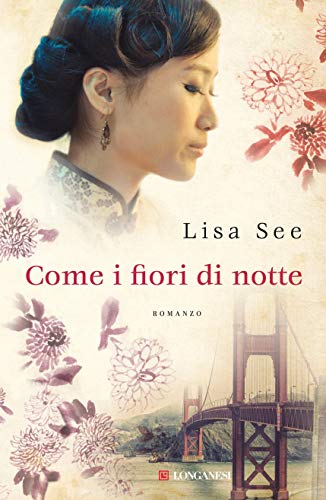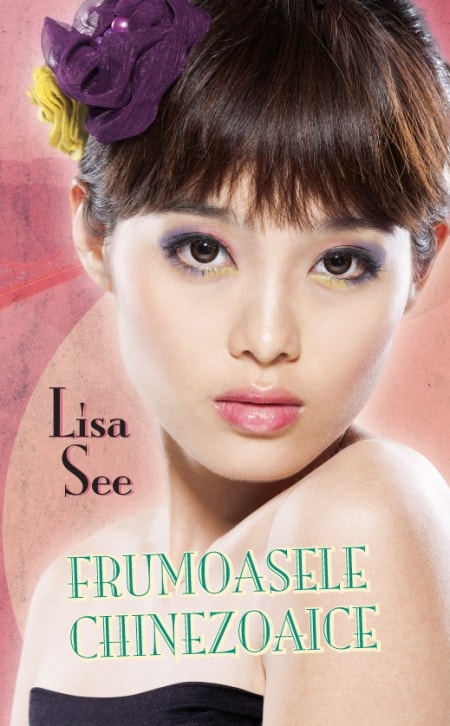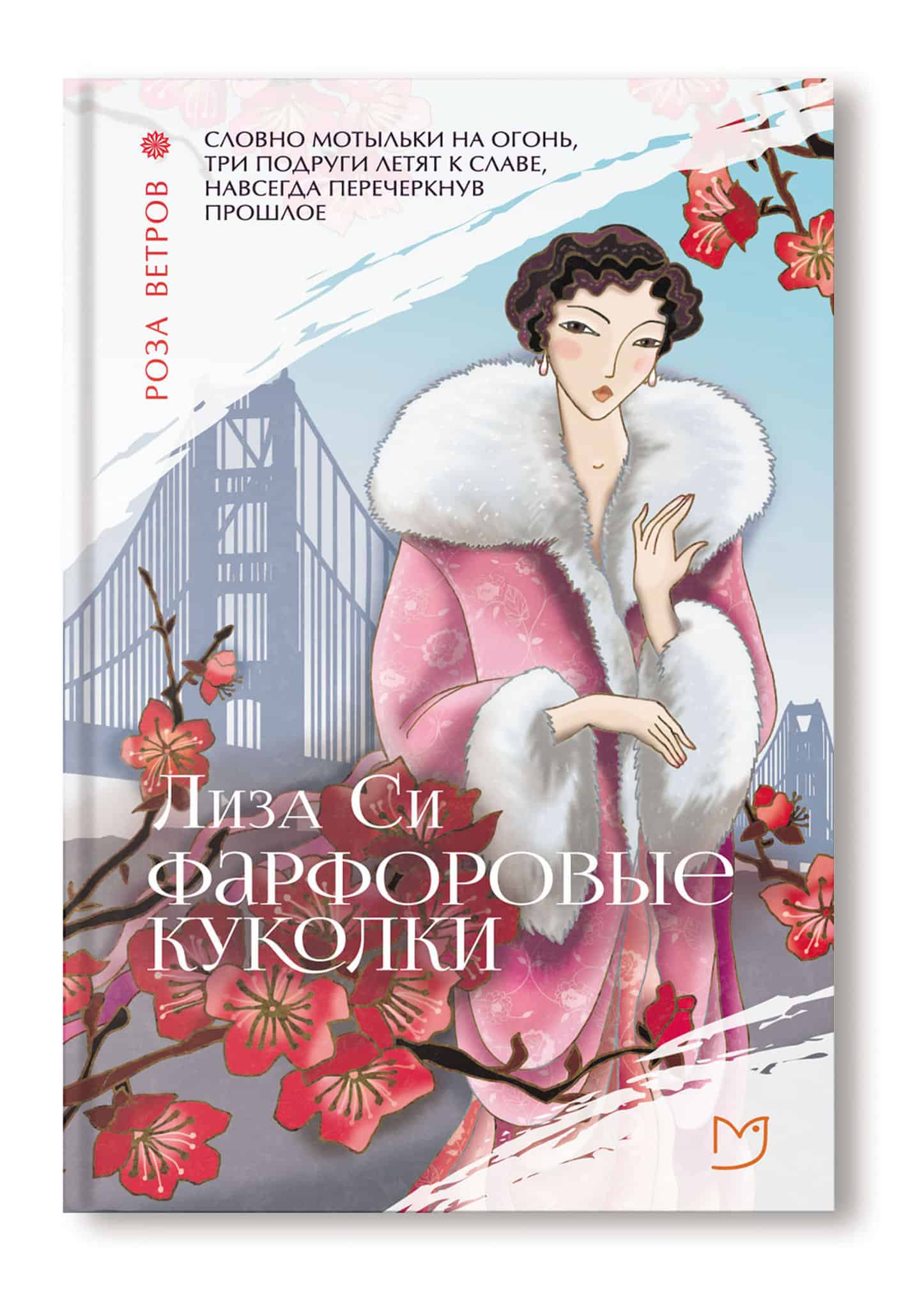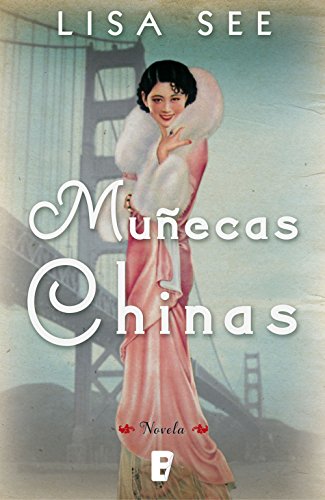Historical Fiction
China Dolls
A Novel
The author of Snow Flower and the Secret Fan, Peony in Love, and Shanghai Girls has garnered international acclaim for her great skill at rendering the intricate relationships of women and the complex meeting of history and fate. Now comes Lisa See’s highly anticipated new novel, China Dolls.
It’s 1938 in San Francisco: a world’s fair is preparing to open on Treasure Island, a war is brewing overseas, and the city is alive with possibilities. Grace, Helen, and Ruby, three young women from very different backgrounds, meet by chance at the exclusive and glamorous Forbidden City nightclub. Grace Lee, an American-born Chinese girl, has fled the Midwest with nothing but heartache, talent, and a pair of dancing shoes. Helen Fong lives with her extended family in Chinatown, where her traditional parents insist that she guard her reputation like a piece of jade. The stunning Ruby Tom challenges the boundaries of convention at every turn with her defiant attitude and no-holds-barred ambition.
The girls become fast friends, relying on one another through unexpected challenges and shifting fortunes. When their dark secrets are exposed and the invisible thread of fate binds them even tighter, they find the strength and resilience to reach for their dreams. But after the Japanese attack Pearl Harbor, paranoia and suspicion threaten to destroy their lives, and a shocking act of betrayal changes everything.
Buy the Book
Paperback
HARDCOVER
EBOOK
AUDIOBOOK
Praise & Reviews
“They endure precarious careers, roller-coaster romances and personal conflicts, but the tone of the story truly darkens when Pearl Harbor is bombed and the United States declares war on Japan. Fear and paranoia sweep across the country, especially on the West Coast, where a large number of Japanese, including those born in the United States, are about to be “relocated.” Anti-Japanese furor erupts. “In Nashville, the Department of Conservation put in a requisition for six million licenses to ‘hunt Japs’ at a fee of two dollars each.” Time and Life magazines “offered diagrams and photos titled ‘How to Tell Japs from the Chinese’ and ‘How to Tell Your Friends from the Japs.’ ” Life explained that one could “spot a Jap by his dogmatic assertions, his insistence on pushing his arrogance in your face, and the way he could be counted on to laugh loudly at the wrong time.” “Every bush and tree looks like the enemy,” Helen says, using one of the many Chinese proverbs she often spouts, and Ruby, who is hiding her true ethnicity, feels she “was not only dancing on the edge of a volcano, she was looking down into its fiery center.” Someone informs on Ruby and she’s sent to the “Topaz War Relocation Center” in Utah. Who has betrayed her? What happens next? The conclusion of this emotional, informative and brilliant page-turner resonates with resilience and humanity. Zukerman is a flutist, writer, arts advocate and Internet video blogger.” — Washington Post (6/2)
“China Dolls is fresh and lively. When was the last time you read a novel about the “Chop Suey Circuit” of 20th-century American showbiz, an era less well known than the Borscht Belt and Chitlin’ Circuit? It’s a compelling story of a (thank goodness) bygone era, and See tells it well. She clearly has done her research — most of the major players in entertainment make an appearance or are mentioned in passing: Deanna Durbin toward the end of her career, in a film with music by bandleader Kay Kyser and his Kollege of Musical Knowledge; Ed Sullivan and Toast of the Town; Dorothy Kilgallen writing in her gossip column about “the enchanting Princess Tai”; Gary Cooper and Ingrid Bergman strolling across the Paramount lot. And See gives dozens of examples of songs from the era, from “I Cain’t Say No” and “Don’t Sit Under the Apple Tree” to peppy, offensive responses to Pearl Harbor such as “You’re a Sap, Mr. Jap.” (“You’re a sap, Mr. Jap / To make the Yankee cranky / You’re a sap, Mr. Jap / Uncle Sam is gonna spankee …”) She could have cut much of the period detail without harming the flow of the story, but what fascinating details.
— LA Review of Books (6/16)
“China Dolls” plunges us into a fascinating history and offers an accessible meditation on themes that are still urgent in our contemporary world. The women’s story explores burning questions about the possibilities of friendship, the profound effects of betrayal, the horrors of prejudice and the nature of ambition – especially female ambition. Though love affairs abound in this book, the women’s central romance may be with their own artistry: their passion for the stage and hunger for glory in a world that belittles them at every turn.
—San Francisco Chronicle (6/11)
“See keeps the momentum going — during wartime and afterward — with some pretty startling revelations about the women as they dance their way through hard times and good fortune. Grace, Helen and Ruby undergo painful experiences, but what keeps this novel from bogging down in sorrow is their exuberance and spirit. With three heroines who each nurture a fierce ambition to achieve the immigrant’s dream despite wartime society’s prejudice, See has crafted a captivating, profoundly American story.
— Miami Herald
“Ultimately, “China Dolls” is a story built on friendship, meaning the three women will reconnect — on stage, as well as in real life — before it’s over. But never lost in the process is See’s portrayal of an era so different from our own, in which racial discrimination was treated with an easy acceptance that found its zenith with the Japanese internment camps but also seeped into arenas both large and small.
See shows Life magazine telling its readers how to distinguish the Japanese from Chinese according to height and complexion. “After decades of being inscrutable,” she writes, “suddenly Chinese could be identified by their placid, kindly and open expressions.”
Given an environment that tolerated such nonsense, what’s surprising is not how few Americans crossed the line to build relationships with those from a different racial background, but how many. The characters in “China Dolls” form their own rainbow coalition, but unintentionally, which seems like the best kind.
—Seattle Times
Excerpt
Part One
The Sun
October 1938–- July 1940
Grace
A Measly Girl
I traveled west—-alone—-on the cheapest bus routes I could find. Every mile took me farther from Plain City, Ohio, where I’d been a flyspeck on the wallpaper of small–town life. Each new state I passed through loosened another rope around my heart, my legs, my arms, yet my whole body ached and I couldn’t shake my vertigo. I lived on aspirin, crackers, and soda pop. I cried and cried and cried. On the eighth day, California. Many hours after crossing the boundary,I got off the bus and pulled my sweater a little more tightly around me. I expected sun and warmth, but on that October afternoon, fog hung over San Francisco, damp, and shockingly cold.
Picking up my suitcase, I left the bus station and started to walk. The receptionists at the cheap hotels I visited told me they were full. “Go to Chinatown,” they suggested. “You can get a room there.” I had no idea where Chinatown was, so that didn’t help me. And I’ll say this about San Francisco: lots of hills, water on practically every side, and, it seemed to me, not a single street ran purely in any one direction. Finally, a man at a fleabag took my money—-a dollar a day, in advance—-and gave me a key to a room.
I washed my hair in the basin and put it up in pin curls, then leaned in to the mirror to examine what remained of my injuries. My forehead had healed completely, but the inside of my skull continued to swim from being banged against the kitchen floor. The skin over my ribs was mottled green, gray, and purple. My shoulder still felt swollen and stiff from being dislocated and then jammed back into place, but the cut on my lip had nearly disappeared. I turned away and sat on the edge of the bed, hungry but too frightened to go out, and listening to the sound of God knows what coming through the walls.
I opened my purse and pulled out the magazine clipping Miss Miller, who’d taught me dance from the age of four, had torn from a magazine and given to me a few months earlier. I smoothed the advertisement with my palm so I could study the artist’s sketch of the Golden Gate International Exposition. Even its location on Treasure Island seemed to beckon. “See, Grace, they’re looking for six thousand workers,” Miss Miller had said. “Dancers, singers, welders, carpenters.The whole works.” She’d sighed then. “I wanted to go so many places when I was young, but it takes guts—-and talent—-to leave everything and everyone you know. You could do it, though.” Her few words and that slip of paper had given me the courage to believeI actually could. After all, I’d won first prize at the Plain City Fair for my tap dancing and singing when I was seven and had held the title ever since.
You always planned to leave home, I told myself. Just because you had to escape sooner than expected doesn’t mean you can’t still fly to the stars.
But my pep talk—-in a scary hotel room, in a strange city, in the middle of the night—-did little to ease my fears. Once in bed, I could practically see the walls closing in around me. To calm myself, I began a routine I’d invented as a small child, running my hands the length of my arms (a broken tibia when I was three; my mom told Doc Haverford I fell down the stairs), slipping along my sides (several broken and fractured ribs over the years), and then lifting each leg and squeezing all the way to my feet (my legs had been a frequent target until I started dancing). The ritual both strengthened and soothed me. I was now alone in the world, with no home to return to and no one to rely on, but if I could survive my father’s beatings and the petty prejudices of my hometown, then I could triumph over whatever obstacles the future threw my way. Maybe. Hopefully.
The next morning, I combed out my hair, sweeping up the sides and letting the curls billow below, the way Carole Lombard did in My Man Godfrey. I put on the dress my dad bought for me when he took us toCincinnati to buy supplies for the laundry. I’d chosen a dusty–rose–colored cotton frock, with a geometric print composed of interlocking mustard–yellow and steel–gray squares. Mom said the pattern of the fabric and cut of the dress looked too mature for me—-and maybe that was so—-but now I considered myself lucky to be wearing something so sophisticated.
Filled with a sense of determination, I went downstairs and onto the street. I asked directions on nearly every corner and managed to find my way to the Ferry Building, where I boarded the boat to Treasure Island, about halfway across the bay and just under the Bay Bridge. I imagined everyone onboard was seeking a job at the Golden Gate International Exposition. As excited as I was, the pulse of the ferry through the choppy water roused my vertigo and my hunger untilI felt, once again, dizzy and sick. Once we reached the dock, everyone walked fast, wanting to be first in line for interviews. Me too. I spotted my first palm trees, which was thrilling because they meant I surely was in California. I’d never seen anything like the fair’s entrance. Giant towers composed of stacked cubes crowned by stylized elephants bookended the gate. Beyond, I glimpsed spires still clothed in scaffolding. My ears pounded from the sounds of hammers, the buzz of electric saws, the rumble of tractors, bulldozers, and flatbed trucks, and the shouts of men calling out orders and cursing the way they do on construction sites.
“Will they be done on time?” a man’s voice asked very close to my ear.
I jumped, spiraling into the terror I experienced around my dad. I swung around to find a young Occidental man about six feet tall, with broad shoulders and sandy–colored hair. He put up his hands in surrender.
“I’m sorry I scared you.” His mouth spread into a contrite smile as I met his deep blue eyes. He looked older than I—-maybe around twenty. He extended his hand. “My name’s Joe.”
“I’m Grace.” No last names. I liked that.
“I’m looking for a job as a rolling–chair boy.” He didn’t bother to explain what that was. “But the real reason I’m here is that I love planes, and I love to fly.”
Up ahead, the others from the ferry disappeared through the gate.
“I love planes so much that my parents told me if I got straight As in high school they’d let me take flying lessons,” Joe continued, sure of my interest. “I trained in a Piper Cub. I learned how to takeoff, land, what to do in a stall, and how to pull out of a spin. Now I have my pilot’s license.”
This told me, among other things, that his family had to be pretty well–off.
“What does that have to do with rolling chairs?”
He laughed and ran a hand through his hair. “Pan Am’s Clipper ships are going to be taking off and landing right here at Treasure Island!”
I nodded, pretending interest when I didn’t know what in the heck he was talking about.
“I’ve been chewing your ear off,” Joe acknowledged. “Sorry about that. What are you doing here?”
“I’m a dancer.”
“Neat.” He pointed his chin toward the gate. “We’d better catch up.”
When I stumbled a bit in my low–slung heels, he grabbed my arm to steady me, and I instinctively pulled away. His eyes went banjo big. I could tell he was about to apologize again.
“Where are you from?” I blurted, hoping to shift his attention.
“Winnetka, Illinois. I’m going to Cal.” Seeing my confusion, he explained, “The University of California. It’s over there.” He pointed east. “In Berkeley. I live in a fraternity house. How about you?”
“Plain City, Ohio.”
“Haven’t heard of it, but we’re both from the Midwest, and our states are practically neighbors. Friends?”
I nodded. He sure was a nice guy—-good–looking, and I liked the way the left side of his mouth tweaked up when he smiled.
“Whew!” He wiped his forehead in mock relief.
He was funny too.
When we had all reached the trailer, a man—-wearing gray flannel trousers, a leather jacket zipped halfway up his chest, and a charcoal–colored trilby pulled down to shield his eyes from the sun—-jumped on a crateand spoke above the din around us: “A lot of you have come from far away. That’s great! We need plenty of folks to get this place up and running. If you’re a painter, electrician, or plumber, head over to the Court of the Seven Seas. Harry will lead the way.”
Half the folks followed the man pointed out as Harry.
“I figure the rest of you are here to apply for either service or performance jobs,” the man in the trilby continued. “If you want to drive one of the elephant trams, work in a concession, become a rolling–chairboy, barker, waitress, fireman, or cop, then go to the Court of Flowers. No flowers there yet, just another trailer like this one.”
“That’s my cue,” Joe whispered. Then, “Good luck!”
He peeled away with a large group. He turned to look back at me, gave me a thumbs–up and another smile, both of which I returned. He strode with such confidence that dust kicked up around his shoes. Through theracket around me, I could just make out him whistling “All of Me.” I loved that song.
The man in the hat sized up those who remained. “All right then,” he said. “If you’re here to be models, dancers, or musicians, you’re with me. I’ll see you one at a time. After a preliminary look–see, I’ll sendyou on to auditions. If you make the cut . . . Aw, hell,” he said with a casual wave of his hand. “You know the drill. Line up here.”
One person after another entered the trailer and then exited five or so minutes later with either a grin or a grimace. I tried to prepare myself for the questions I might be asked about my dance experience, andonce again my father came into my mind. He may have beat me at home, but he liked to boast to others about how many ribbons and apple–pie prizes I’d won. He’d pushed me to be an “all–American girl,” which meant that he let me go to the Rialto to watch musicalsto inspire me to practice even harder. I adored Eleanor Powell in Broadway Melody of 1936, in which she danced without music. I saw that movie maybe ten times, and then tried to re–create her steps at every opportunity: on the sidewalk outside the theater,at Miss Mil-ler’s studio, and in our family’s laundry. Of course, the kids in school made fun of me when I said I wanted to be a star. “You? An Oriental girl?” They had a point. It wasn’t like there were any famous Chinese movie stars apart from Anna May Wong,and she didn’t sing or dance as far as I knew. Then I saw Dorothy Toy and Paul Wing—-a Chinese dance team—-in the whimsically titled With Best Dishes. I decided if they could make it, why not me? But would any of that help me now? I suddenly feltvery apprehensive and very alone.
When my turn came, I entered the trailer and closed the door behind me as I’d seen others do. The man motioned for me to sit.
“Your name?”
“Grace Lee.”
“How old are you?”
“Old enough to sing and dance,” I answered pertly. I wanted to be a star, so no matter how desperate I was, I had to act like one. “I’m good.”
The man pinched his chin as he considered my response.
“You’re Oriental,” he observed, “and you’re quite the knockout. Problem is, I don’t have anything for you.”
I opened my purse, pulled out Miss Miller’s clipping, and pushed it across the desk. “It says here you need performers for the Cavalcade of the Golden West—-”
“That’s a big show. Hundreds of performers. But I don’t need an Oriental girl.”
“What about at the Japanese Pavilion?” I asked, my false confidence instantly eroding. “I came from so far away. I really need a job.”
“It’s the Depression, kid. Everyone needs a job.” He glanced again at my application. “And I hate to break it to you, but you aren’t Japanese. Grace Lee, that’s Chinese, right?”
“Will anyone know?”
“Kid, I doubt anyone can tell the difference. Can you?”
I shrugged. I’d never seen a Japanese. I’d never seen a Chinese either other than my mother, my father, and my own reflection in the mirror—-and Anna May Wong, Toy and Wing, and a couple of Orientals playing maidsand butlers on the silver screen, but those weren’t in real life—-so how could I be certain of the difference between a Japanese and a Chinese? I only knew my mother’s thin cheeks and chapped hands and my father’s weathered face and wiry arms. Like that, myeyes began to well. What if I failed? What if I had to go home?
“We don’t have Orientals where I’m from,” I admitted, “but I’ve always heard that they all look alike.”
“Be that as it may, I’ve been told to be authentic . . .” He snapped his fingers. “I’ve got it. There’s going to be a Chinese Village. Those folks are doing their own hiring. Maybe I can get you set as a dancerfrom China.”
“I’m not from China. I was born here.”
Unconcerned, he picked up the phone. I listened as he suggested me to the person I assumed was in charge of the Chinese Village. He dropped the receiver back in the cradle. “They aren’t hiring dancers in a permanentway. With all the troubles in China, it wouldn’t be right.”
Troubles in China? I’d read about Germany’s aggression in Europe in the Plain City Advocate, but the newspaper came out only once a week. It barely covered events in Europe and never in Asia, so I was ignorantabout all things Chinese except Chinese rice wine, which my mom made and sold out our back door on Friday and Saturday nights to the men in Plain City—-a place as dry as chalk even after Prohibition ended. My mind pondered these things, but they were just adiversion from my panic.
“What about on the Gayway?” I remembered that from Miss Miller’s advertisement.
“That’s a carnival. I don’t see you there at all.”
“I’ve been to a carnival before—-”
“Not like this one.”
“I can do it,” I insisted, but he’d better not try sending me to a hoochie–coochie tent like they had for men at the Plain City Fair. I’d never do that.
He shook his head. “You’re a regular China doll. If I put you in the Gayway, the men would eat you up.”
My five minutes were done, but the man didn’t dismiss me. Instead, he stared at me, taking in my dress, my shoes, the way I’d curled and combed my hair. I lowered my eyes and sat quietly. Perhaps it was proof ofhow the most innocent can remain safe—-or that the man really was of good character—-that he didn’t try or even suggest any funny business.
“I’ll do anything,” I said, my voice now shaking, “even if it’s boring or menial—-”
“That’s not the way to sell yourself, kid.”
“I could work in a hamburger stand if I had to. Maybe one of the performers in the Cavalcade of the Golden West will get sick. You should have someone like me around, just in case.”
“You can try the concessions,” he responded dubiously. “But you’ve got a big problem. Your gams are good, and your contours and promontories are in the right places. You’ve got a face that could crush a lily. Butyour accent—-”
“My accent?”
“Yeah. You don’t have one. You’ve got to stop talking all perfect. You need to do the ching–chong thing.”
Never! My father spoke in heavily accented English, even though he was born here. He always blamed it on the fact that he’d grown up in a lumber camp in the Sierras, where he lived with his father, who conversed only in Chinese. My mother’s English was flawless. She was born in China but came to America so early that she’d lost her accent entirely. How she was raised—-somehow living far enough from other Chinese that she didn’t have an accent—-was never discussed.The one time I asked, my father smacked me. In any case, the three of us could understand each other only if we communicated in English. And even if we all had spoken the same dialect, my father would never have allowed us to use it.Speaking English means you are American, and we must be American at all times. Reciting sentences likeI hear you cut school again and what’s the big deal? showed we were assimilated. But all that didn’t mean Dad wouldn’t exaggerate his accent for his customers if he calculated it would make them happy.
Discussion Guide
1. The novel opens with the below quotation:
“Only three things cannot be long hidden:
the sun
the moon
and the truth.”
What does this quotation mean in the context of CHINA DOLLS? Lisa’s novel is filled with secrets — some hidden and not revealed until late in the novel. What were the most important ones? Why are they hidden? Why are they secrets? Do you agree with how and when they were revealed?
2. “In just these few minutes I’d learned two things about myself: I would never lower myself by faking an accent like my dad did (or Charlie Chan did in the movies), nor would I work naked as a hoochie-coochie dancer. All right, so I had pride. But what price would I have to pay for it?” (p. 11). This is something Grace realized about herself when she just started out as a performer. How did her outlook evolve throughout the novel?
3. Grace’s father brutally abused her when she was a young girl. Although Lisa never excused his behavior, how did she gradually reveal to the reader some of the factors that made him the man he was? Did you ever accept him for who he was? In what ways did the abuse Grace suffer at the hands of her father shape her subsequent relationships with men?
4. How did your perception of Ruby shift throughout the story? Did the hardship and discrimination she experienced affect the rest of her actions, whether commendable or not? How did Ruby’s ambition differ from that of Grace’s?
5. Ruby could have had any man she wanted—and she often did. Is it fair to be critical of the way Ruby tried to hide her early relationship with Joe from Grace? Why did she choose Joe, especially in light of Grace’s crush on him? Was this betrayal ultimately helpful to Grace in some respects?
6. How did you react to the way Ruby hid her Japanese ancestry as World War II began? How did you feel about her relationship with her parents? Did you think Ruby’s parents were Japanese spies? Could you tell one way or another? Did it matter to you whether they were verifiably innocent or guilty?
7. Helen’s narratives were filled with traditional Chinese sayings. Which are the most important in the novel and why? What aspects of Helen’s life made her situation fundamentally different from that of the other girls? When Helen’s past was revealed, were you surprised? How did it affect her approach to friendship?
8. Helen’s and Grace’s fathers share many similarities in how they look at their daughters and women. In what ways do their personal backgrounds make the two men different from each other?
9. What important elements did Eddie bring to the novel? Would you have married Eddie if you had been in Helen’s situation?
10. Ruby says to Grace, “You want an American life. I want an American life. Even Helen wants an American life” and then thinks to herself “And all of us, in our own ways, were doing the best we could to erase who we were” (p. 301). What do you think an “American life” meant for each woman, and why did they have to erase themselves to achieve it? Who were you rooting for most in the novel — Grace, Helen or Ruby? And why?
11. Did you think Grace’s relationship with Joe was significantly different after the war? If so, how? In what ways had Grace changed? Joe? In reality, could they have changed as much as they did in the novel?
12. How was Helen’s betrayal of Ruby different from her betrayal of Grace? Which betrayal was worse? Why? Would the final confrontation scene have been different if it had been entirely narrated by Grace? Or by Helen?
13. While there are big betrayals in the novel, there were also moments of great resiliency and hope as the girls helped each other. In what ways did Grace, Helen, and Ruby support one another?
14. Perhaps more than in any of her other novels, Lisa has written in great detail about clothes and fashion. Why do you think she did that and what was she trying to say?
15. “China doll” or “China dolls” are phrases used often in the novel. What are the most important meanings behind this phrase? Which are positive? Which are negative? At the end of CHINA DOLLS, Tommy’s daughter criticized Grace’s career as one that promoted racial stereotypes. Was that criticism fair? Why or why not?
Videos
Frequently Asked Questions
(FAQ)
I started with the idea that I wanted to write about three friends. That triangle is so complicated—for men and women! I recently learned that NASA even did a study on the subject and learned that they should always send two, not three, astronauts into space, because otherwise the two-against-one scenario always arises.
But I’d also been thinking about writing about the Chinese-American nightclub scene of the 1930s and 1940s for years. I have fans who have sent me photos of their mothers, aunts, fathers, and uncles who performed. There were so many great stories. I also felt that if I didn’t do this now, then I might not have a chance to interview some of the earliest performers. I interviewed Dorothy Toy and Mary Ong Tom when they were 93; I interviewed Mai Tai Sing and Trudi Long when they were 88. I count myself very fortunate to have captured their stories and had a chance to experience their humor, courage, and persistence firsthand. Those four women were my greatest inspiration for China Dolls.
Every reader is different, and every reader takes away something different. If I do say so myself—and I guess I am saying so, ha!—there’s a little something for everyone in China Dolls. So… If you like dancing, there’s dancing. If you like backstage stories, there’s that. If you like stories about friendship, I think you’ll find that this is a very different take on the dark shadow side of friendship. The novel is set during one of the most transformative periods in our history—the end of the Depression, World War II, and the adoption of television into our homes in a big way. In the decade from 1938 to 1948, we, as Americans, changed how we looked at each other and at the world, what we ate, how we dressed, how we spent time with our families, and how we spent our leisure time. So there’s lots of stuff to learn and discover in these pages. Lastly, if you like to have a good cry when you’re reading a book, then China Dolls is the book for you!
Anything starring Anna May Wong is worth a look, and I think some of the World War II films where Chinese are playing Japanese (because Japanese actors were interned) are interesting just for the sad history of the time. Beyond those, I’d also want people to see some of the other performers who danced and sang. Here’s a link to a YouTube clip from a film called “With Best Dishes.” (Yes, that’s the correct whimsical title.) In it, you see Paul Wing and Dorothy Toy, the “Chinese Fred Astaire and Ginger Rogers.” They’re amazing!
http://www.youtube.com/watch?v=-EMhCAhY7hw
And here’s another with a singer named Anna Chang, and yes that’s Cary Grant with her:
http://www.youtube.com/watch?v=O_yYNie-qHU
There are so many negative roles that it’s almost hard to know where to begin, but the one that immediately pops into my mind is Mickey Rooney playing a Japanese, Mr. Yunioshi, in “Breakfast at Tiffany’s.”
Step Inside:


